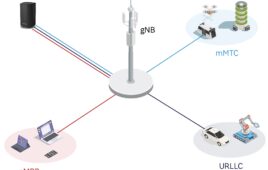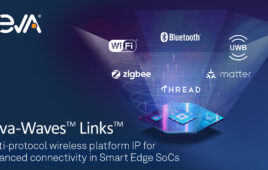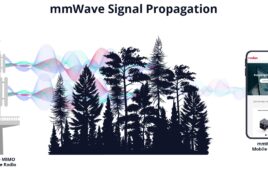Verizon Wireless president Ronan Dunne said that 5G networks enable tailoring to individuals’ needs, leaning on technology like network slicing to deliver specific capabilities depending on the user’s application.
Speaking at the Oppenheimer Technology, Internet & Communications Conference Dunne said “network as a platform means that I have all the benefits of scale. But with the enhanced capabilities of 5G, and particularly over the next 3 years as the next couple of releases of the standards come out, increasingly, I will be able to deliver a network for a one-to-one relationship. So I’ll actually be able to deliver an experience on the network that is defined around the specific user needs of that customer at that time.”
Dunne stressed that Verizon’s network strategy is centered on engineering and being technology-enabled.
“This is not technology for technology’s sake,” he said. “This is about how do you deliver enhanced capabilities that are meaningful to customers in whatever, whether it’s consumers or business.”
With network slicing, elements in the network (Dunne cited latency, speed, bandwidth and battery life) can be separated out to enable specific features based on the needs of various applications, for example, time-critical messaging that needs low-latency but not massive bandwidth. Or “burst capacity” could be delivered for applications that need it at specific times, Dunne said.
“Think about burst speeds that can be 100-times what we’re used to today,” he said.
Verizon’s 5G fixed wireless network will initially launch in four cities later this year, with Houston named as the latest addition. Dunne said after the residential broadband rollout, Verizon will quickly move to its overall 5G mobile efforts during 2019.
When it comes to new applications, Dunne said mobility will be the first thing to come during 2019, with people experiencing “significantly enhanced speeds.” After that, he pointed to real-time enterprise applications that need ultra-low latency, citing retail environments and high-precision manufacturing. Dunne also said he expects interesting personal applications to start to develop, including healthcare monitoring and gaming.
Verizon is already talking to developers of next-generation games about how 5G features can be enabled, according to Dunne.
“That’s probably where you get this extra level in your game,” he said. “But only Verizon’s 5G customers are able to access with the extra capability there.”
Dunne said 5G is also about the economic value add when it comes to 5G.
“It’s not just doing what I did slightly more efficiently,” he noted. “It’s about a fundamental enabling. It’s one of these GPTs, general-purpose technologies, that can start to transform ecosystem’s economic models.”




